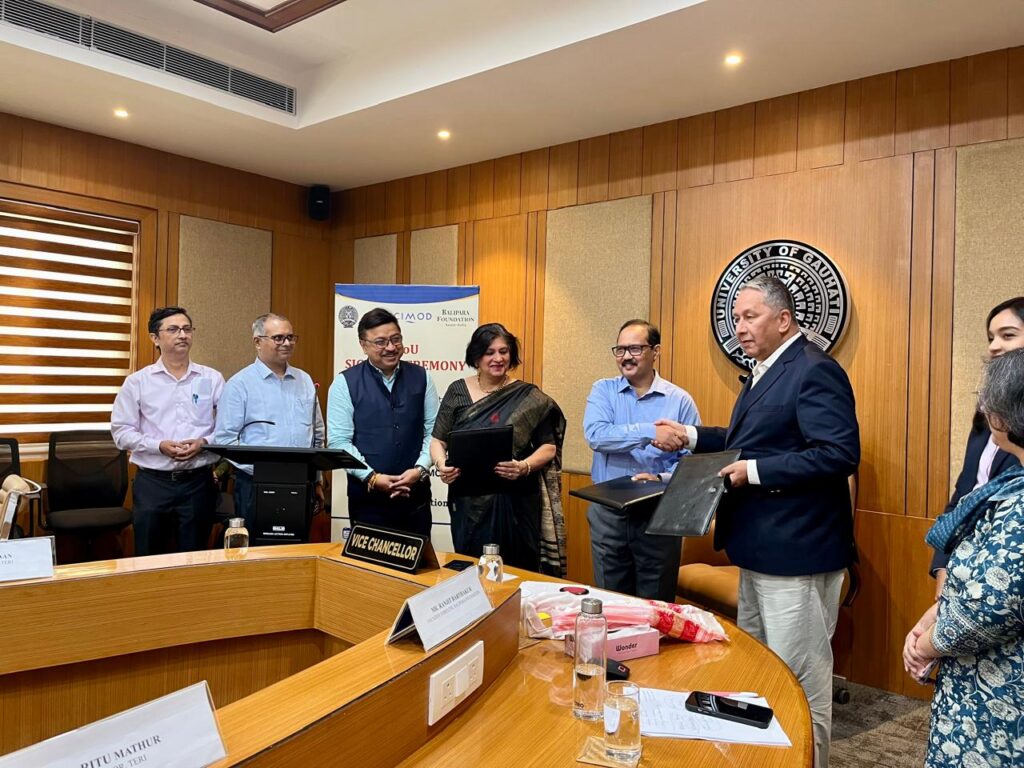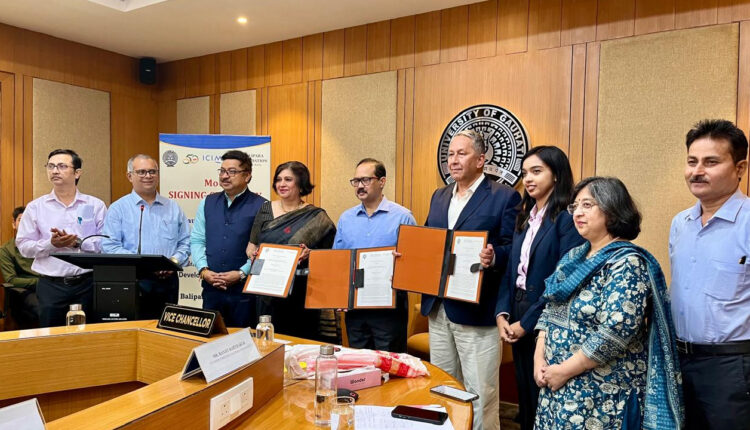TERI, ICIMOD, Balipara Foundation, and Guwahati University Sign MoU to Strengthen Biodiversity Conservation, Cultural Preservation, and Ecosystem Valuation
The Energy and Resources Institute (TERI), the International Centre for Integrated Mountain Development (ICIMOD), Balipara Foundation, and Guwahati University signed a Memorandum of Understanding (MoU) at Guwahati University to drive collaborative action on biodiversity conservation, cultural preservation, ecosystem service valuation, and community-led environmental programs in the Eastern Himalayas.
The signing ceremony was attended by Dr. Noni Gopal Mahanta, Vice-Chancellor, Guwahati University, along with faculty members and heads of Guwahati University, Dr. Vibha Dhawan, Director General, TERI, Dr. Dipankar Saharia , Senior Director, TERI, Dr. Ritu Mathur, Director, TERI, Ranjit Barthakur, Founder Forrester, Balipara Foundation, Karishma Ahmed, Chief Communications Architect, Balipara Foundation, Nitu Kumar Kalita, Executive Member, Balipara Foundation, senior members of ICIMOD, and other dignitaries.
The MoU lays the foundation for integrating scientific research, indigenous knowledge, and grassroots action into conservation and sustainable development. The collaboration will focus on the preservation of culture and indigenous knowledge through documentation and revival of traditional languages and conservation practices. It will support ecosystem service valuation by assessing the ecological and economic benefits of forests, water bodies, and biodiversity to inform sustainable policy and development. Species and biodiversity conservation programs will be established to protect endangered species, restore ecosystems, and build climate resilience through community-led initiatives.

As part of the agreement, short-term certificate courses will be introduced to train students, forest rangers, and conservation professionals in environmental sustainability, traditional ecological knowledge, and nature-based solutions. The institutions will also collaborate on seed banks and plant-based conservation programs, developing community-driven seed banks and restoration initiatives to strengthen agroforestry and local livelihoods. Integrated modeling, surveys, and assessments will be conducted to advance biodiversity monitoring, climate resilience, and sustainable resource management. Additionally, the partnership will support community and youth entrepreneurship programs, equipping local entrepreneurs and youth with skills and resources to establish nature-positive enterprises and conservation-driven economic activities.
A remarkable highlight of the program was the launch of the Center for Himalayan Studies, which will serve as a dedicated platform for interdisciplinary research, policy engagement, and community-driven conservation initiatives across the Eastern Himalayas. The Center aims to advance knowledge on Himalayan ecology, sustainable development, and indigenous conservation practices while fostering collaboration between academic institutions, policymakers, and local communities.
The signing of this MoU represents a commitment to long-term collaboration that combines academic expertise, scientific research, and grassroots conservation efforts to enhance environmental and cultural resilience in the Eastern Himalayas. By fostering interdisciplinary research, policy engagement, and community-driven interventions, this partnership aims to create scalable conservation models that balance ecological sustainability with economic development.



Comments are closed.